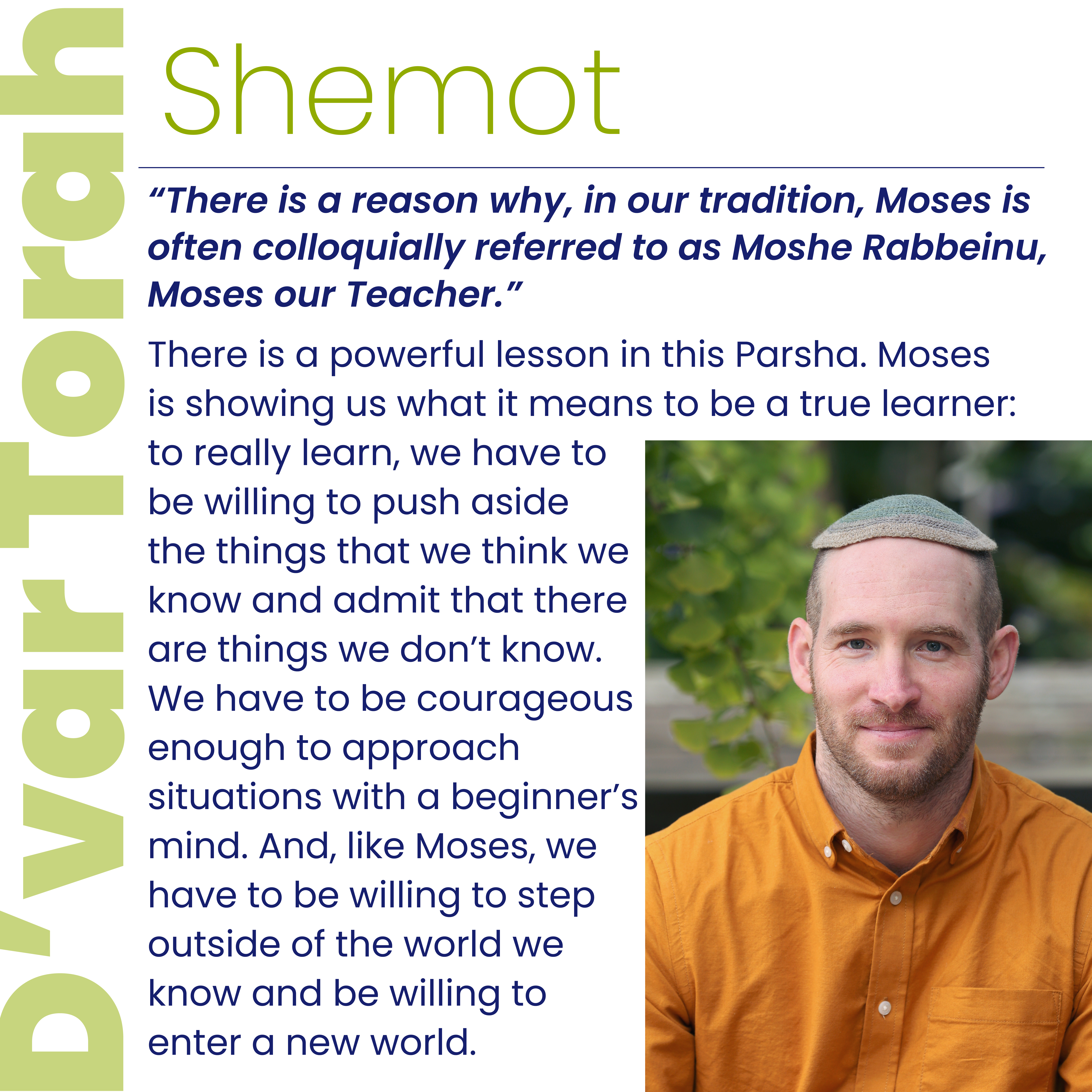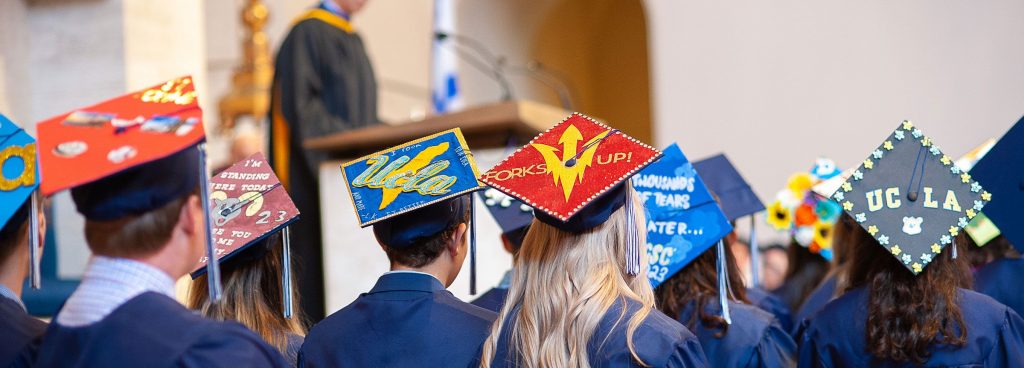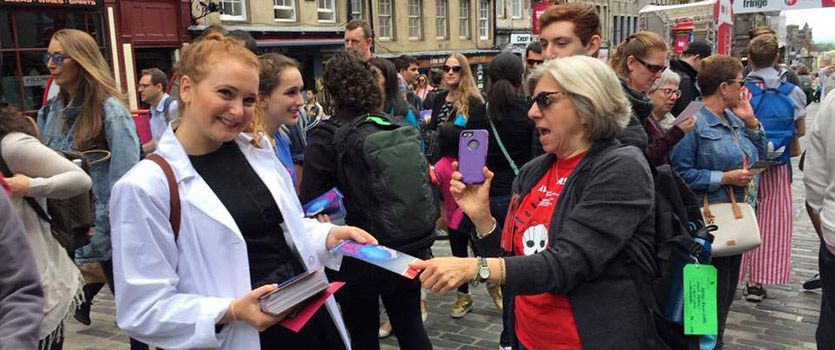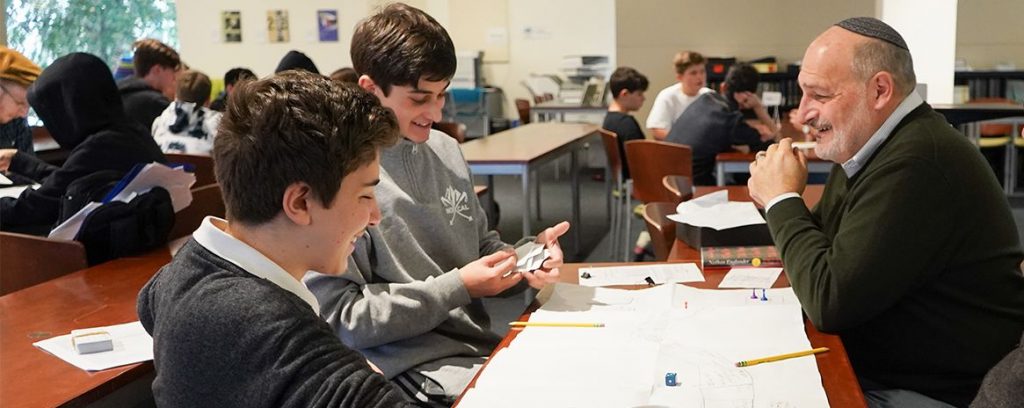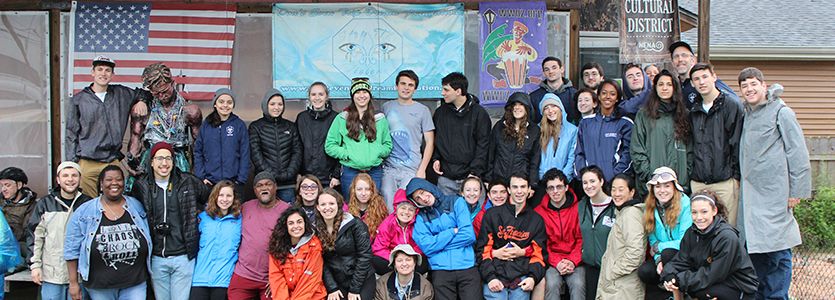Rabbi Joshua Buchin, Co-Dean of Students; Jewish Studies Teacher
In order for us to learn and grow, we have to be willing to step outside of our comfort zone. This is a scary thing to do and can often lead to challenging moments where our worldview and narrative is disrupted. But doing so is essential for our learning and for our growth.
In this week’s Parsha, we find an example of this lesson. Our Parsha, Shemot, is the start of the Book of Exodus and contains the accounts of Moses’ early years. Moses, after growing up in Pharaoh’s palace, steps outside of his comfort zone by leaving the palace and noticing the suffering of his brethren.
Sometime after that, when Moses had grown up, he went out to his kinsfolk and witnessed their labors. He saw an Egyptian beating a Hebrew, one of his kinsmen (Exodus 2:11).
According to Ibn Ezra, a 12th-century Biblical commentator, this refers specifically to Moses leaving the palace. This detail is significant. Before this, Moses’ life has been sheltered, one of privilege. He was a prince raised in the palace unaware of the suffering of those enslaved right outside the palace walls! But upon leaving the palace, he is confronted with the reality and suffering of slavery and is compelled to action. For Moses, this event leads to further changes. He can no longer return to who he was. His worldview has been challenged and he cannot simply go back to the sheltered life he once lived.
Moses turned this way and that and, seeing no one about, he struck down the Egyptian and hid him in the sand. When he went out the next day, he found two Hebrews fighting; so he said to the offender, “Why do you strike your fellow?” He retorted, “Who made you chief and ruler over us? Do you mean to kill me as you killed the Egyptian?” Moses was frightened, and thought: Then the matter is known! When Pharaoh learned of the matter, he sought to kill Moses; but Moses fled from Pharaoh (Exodus 2:12 – 15).
As we all know, Moses’ story does not end here. It is this moment that compels Moses not just to flee but to encounter the Burning Bush, discover his true purpose in life, and ultimately bring about the redemption of the Israelites. But none of this would’ve happened without Moses taking the first and scary step of stepping outside, both metaphorically and literally in this case.
There is a reason why, in our tradition, Moses is often colloquially referred to as Moshe Rabbeinu, Moses our Teacher. There is a powerful lesson in this Parsha. Moses is showing us what it means to be a true learner: to really learn, we have to be willing to push aside the things that we think we know and admit that there are things we don’t know. We have to be courageous enough to approach situations with a beginner’s mind. And, like Moses, we have to be willing to step outside of the world we know and be willing to enter a new world.
We are now into the second half of the school year. Let us embrace the lessons found in this week’s Parsha and commit ourselves to learning, trying new experiences, and, like Moses in this week’s Parsha, stepping outside of our comfort zones.


